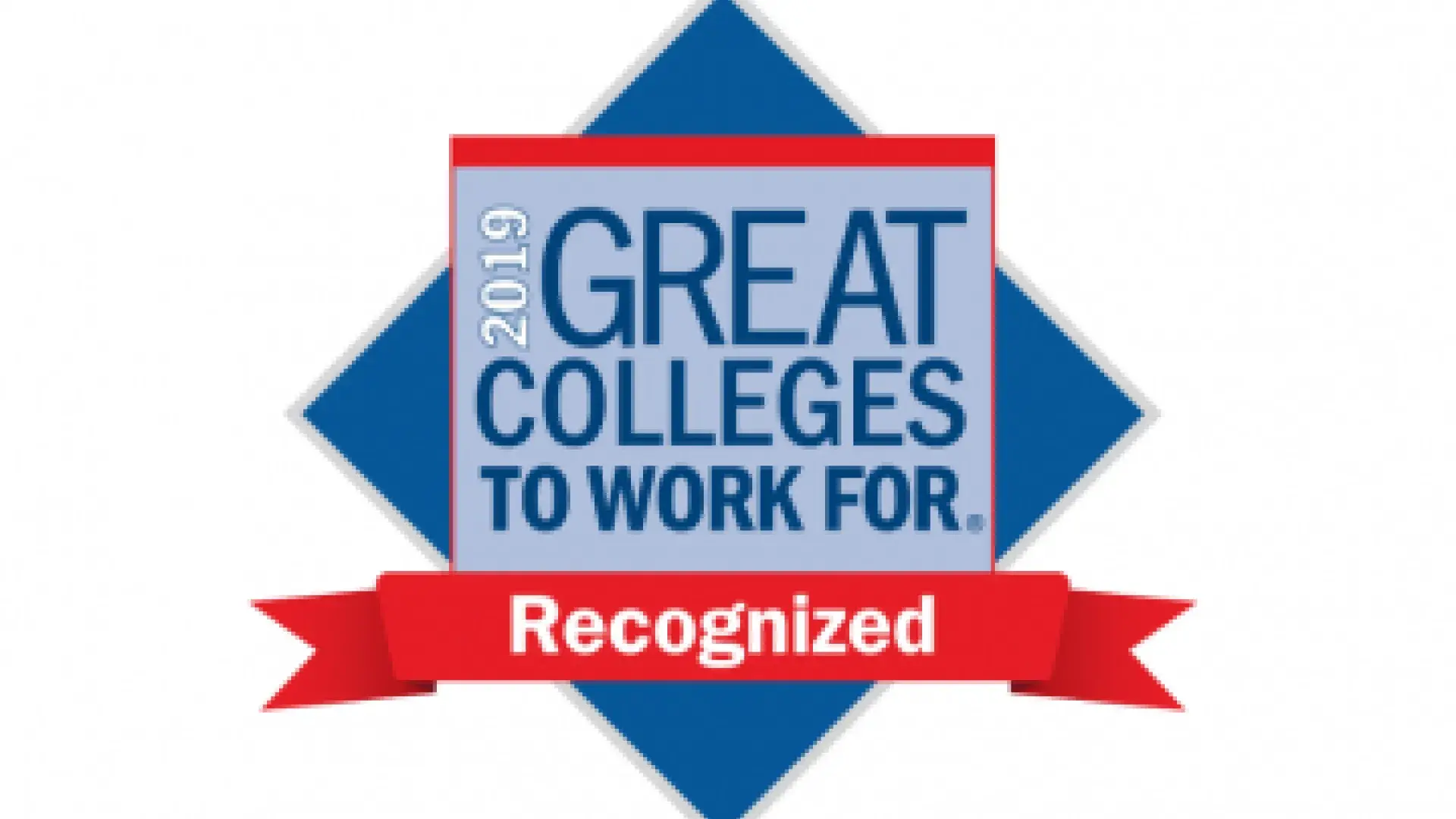
MGH Institute of Health Professions has been named a “Great College to Work For” for the tenth consecutive year.
The MGH Institute is the only school in the city of Boston to achieve the ranking in the 2019 survey, which was released September 16 by research and consulting leader ModernThink.
Just 85 of 236 participating institutions earned “Great College to Work For” status for specific best practices and policies. The survey is one of the largest and most respected workplace recognition programs in the country. Now in its twelfth year, it recognizes the colleges that get top ratings from their employees regarding workplace practices and policies.
The MGH Institute, which has approximately 1,600 students, was included in the Small Colleges category for schools with fewer than 3,000 students.
“Receiving this recognition for 10 years in a row is an affirmation by our faculty and staff that the Institute is a place where talented people have opportunities to thrive as they dedicate themselves to our mission of educating tomorrow’s health care leaders,” said MGH Institute President Paula Milone-Nuzzo. “We are very proud the IHP is considered a great place to work and are committed to assuring it remains so.”
The IHP was recognized in two categories: Compensation & Benefits, where pay is fair and benefits meet the needs of employees; and Respect and Appreciation, where employees are regularly recognized for their contributions.
“MGH Institute of Health Professions is a leader among Massachusetts colleges in a number of growth and success indicators, and that is the result of a workplace culture which fosters collaboration and mutual respect,” said Richard Doherty, president of the Association of Independent Colleges and Universities in Massachusetts. “It is no surprise to me that the Institute is once again recognized as a great place to work.”
Dr. Diane Smith, chair of the Faculty Senate and a professor of occupational therapy, said the school’s leadership encourages collaboration with the faculty and supports the work of the Senate maintaining open lines of communication between faculty and administration. “Senior leadership regularly seeks discussion with faculty leaders to identify issues and frame collaborative strategies and action for success,” she said.
Anna Cottrell, chair of the Staff Council and the associate registrar in the Office of Enrollment Services, cited how staff members were included in the IHP’s recent initiative to create a new strategic map. “The staff really has a seat at the table when it comes to charting the Institute’s future,” she said. “We have a direct voice to senior leadership and the president, and it allows staff members to truly be a part of the planning process.”
“There can be little doubt that the day-to-day experience of our faculty and staff influences the experiences of our students,” said Rich Boyer, senior consultant at ModernThink. “The institutions recognized in this year’s Great Colleges to Work For program have each found their own key ingredients to engage their faculty and staff to the ultimate benefit of their students.”
Survey results are based on a two-part assessment process: an institutional audit that captured demographics and workplace policies from each institution, and a survey administered to faculty, professional support staff, and administrators. The primary factor in deciding whether an institution received recognition was employee feedback.
